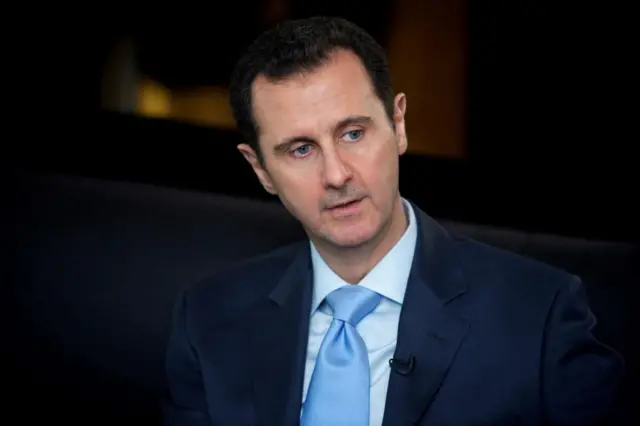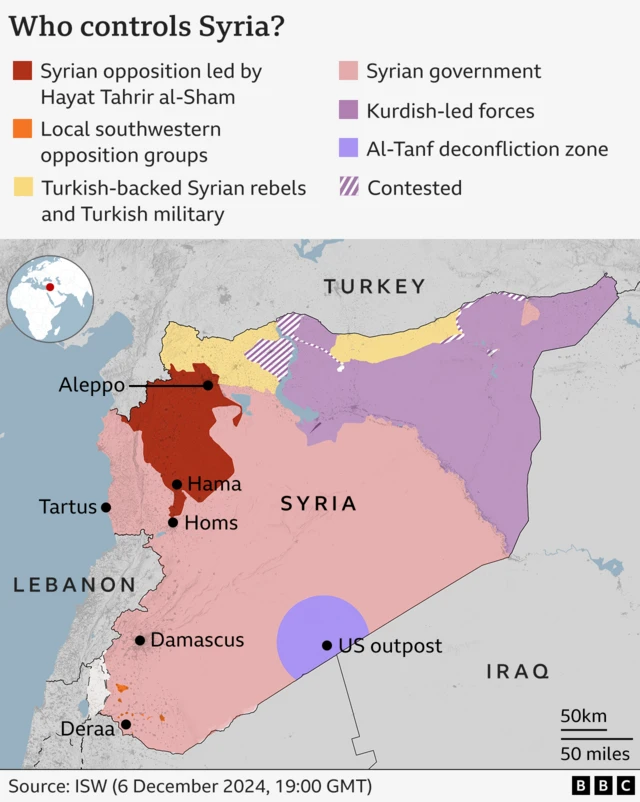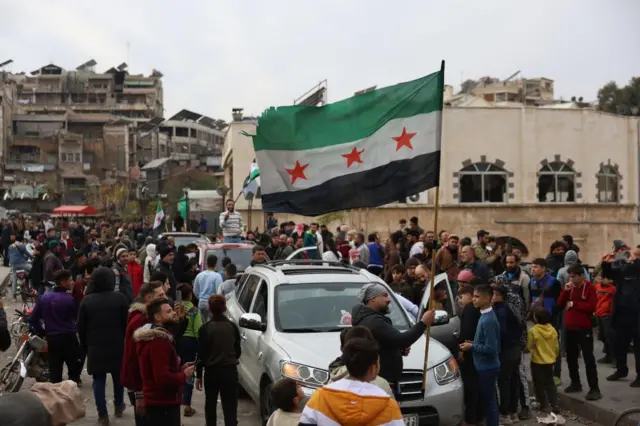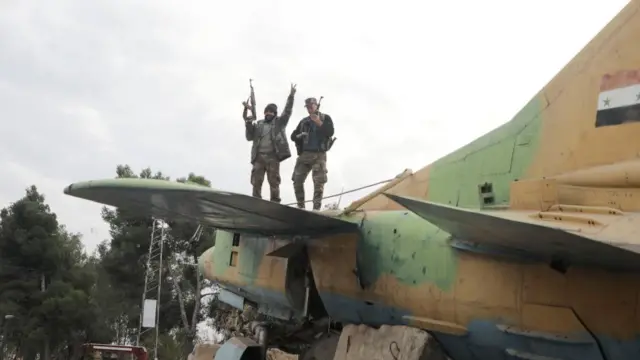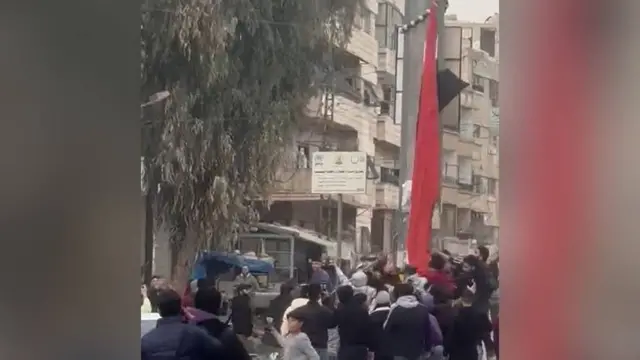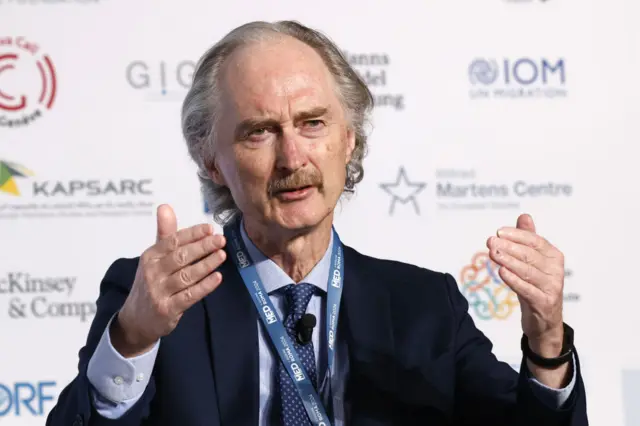'Any suggestion of the use of chemical weapons would be intolerable'published at 19:50 GMT 7 December 2024
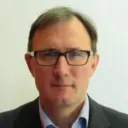 James Landale
James Landale
Diplomatic correspondent
Britain has warned the government of Syria not to use chemical weapons against the insurgent forces seizing territory across the country.
The Foreign Office Minister for the Middle East, Hamish Falconer, said that any use of chemical weapons by either Syrian or Russian forces would be “intolerable”.
He was speaking to the Manama Dialogue conference in Bahrain, organised by the London-based think tank, the International Institute for Strategic Studies. Falconer said the UK was closely monitoring the latest developments and coordinating with partners.
He repeated calls for the protection of civilians to prevent further displacement and disruption of humanitarian access.
“I remain very concerned by the potential for further large scale attacks by the regime or by Russia,” he said. “Any suggestion of the use of chemical weapons would be intolerable.”
